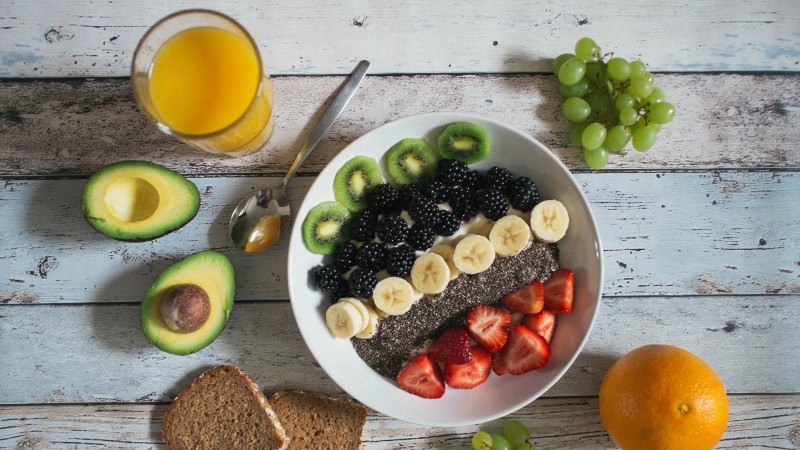Aging brings about unique changes in the body that influence not just nutritional needs but overall health and vitality. As the years progress, prioritizing a holistic approach to well-being is essential, encompassing nutrition, physical activity, and mental health.
By following key nutritional and lifestyle strategies, seniors can enhance energy levels, support bodily functions, and boost overall well-being, helping them make the most of every stage of life. Here are essential tips to consider.
Key Takeaways
Aging brings about unique changes in the body that influence not just nutritional needs but overall health and vitality.
- Eat a balanced diet consisting of whole foods such as colorful fruits, leafy green vegetables, whole grains, lean proteins, and healthy fats to ensure optimal health.
- Stay hydrated by drinking at least eight glasses of water daily and limiting sugary drinks like soda and fruit juices.
- Consider supplements such as vitamin D and calcium for bone health, B vitamins for energy production and brain health, and consult with healthcare providers before making any decisions.
1. Eat a balanced diet
A balanced diet forms the cornerstone of good health at any age, becoming especially important in later years.
Focusing on a variety of whole foods, such as colorful fruits, leafy green vegetables, whole grains, lean proteins, and healthy fats, will benefit seniors. This diversity helps ensure the body receives all the essential nutrients for optimal health.
Whole foods and nutrient density
Older adults should strive for colorful plates that include a variety of food groups. Brightly colored fruits and vegetables like berries, carrots, and bell peppers offer essential vitamins, minerals, and antioxidants.
Whole grains such as brown rice, quinoa, and oats provide valuable fiber, which aids digestion, helps maintain a healthy weight, and supports heart health by lowering cholesterol levels.
Heart-healthy fats
Include foods rich in omega-3 fatty acids, such as fatty fish (like salmon and mackerel), flaxseeds, and walnuts. Omega-3s support heart health by reducing inflammation and lowering the risk of heart disease.
For example, research has shown that regular consumption of fatty fish can significantly decrease the likelihood of cardiovascular events.
2. Stay hydrated
Proper hydration is vital for seniors, as the body’s thirst mechanism may become less reliable with age.
Drinking enough water throughout the day is essential for digestion, nutrient absorption, and overall health.
Daily water intake
Older individuals should aim for at least eight glasses of water daily, adjusting for activity levels and health needs as proper hydration supports digestion, cognitive function, energy, and skin health.
Incorporating low-sodium broths or electrolyte-rich beverages like coconut water, especially after physical activity, can also help replenish fluids and provide essential nutrients.
Concerns about sugary drinks
Limit sugary drinks like soda and fruit juices, which can contribute to dehydration and unnecessary calorie intake. These beverages often contain high amounts of added sugars that can lead to weight gain and other health issues.
Instead, opt for water infused with fruits, herbal teas, or sparkling water to make hydration more enjoyable.
3. Consider supplements
As individuals age, the body may become less efficient at absorbing essential nutrients from food, potentially leading to deficiencies.
Although a balanced diet should be the primary source of nutrition, supplements can be valuable in filling these gaps.
Consult with healthcare providers
Common supplements for seniors include vitamin D and calcium, which are essential for bone health and reducing the risk of osteoporosis. Vitamin D also contributes to immune function and can enhance mood.
B vitamins, particularly B12, are also crucial as they support energy production and brain health. A B12 deficiency can lead to fatigue, weakness, and cognitive difficulties.
Potential supplement options should be discussed with healthcare providers to address any nutritional deficiencies.
Quality matters
Seniors should prioritize high-quality products specifically formulated for older adults when selecting supplements.
It is beneficial to choose options that contain essential nutrients without unnecessary fillers or additives. Healthcare providers can offer guidance in selecting the right supplements based on individual health needs.
4. Practice mindful eating
Mindful eating involves tuning into the body’s natural cues for hunger and satisfaction. This approach encourages a more intuitive relationship with food, which can lead to healthier eating habits.
Practicing mindfulness can also reduce overeating and enhance meal enjoyment.
Focus on the eating experience
Seniors are encouraged to take time to enjoy meals without distractions. Eating in front of screens or while multitasking can lead to mindless eating, potentially resulting in overconsumption.
Engaging the senses during meals enhances satisfaction and promotes appreciation for the nourishment food provides.
Slow down and savor
By slowing down and truly experiencing the sensations of eating, older individuals can cultivate a deeper appreciation for nourishing foods that support overall health. Chewing slowly and setting down utensils between bites can enhance the enjoyment of food and improve digestion.
Additionally, practicing gratitude before meals by reflecting on the nourishment food provides can create a positive mindset and encourage mindful eating.
5. Incorporate antioxidant-rich foods
The consumption of antioxidants is essential for safeguarding cells against oxidative stress caused by free radicals.
This protection becomes increasingly important with age, as it helps reduce the risk of chronic conditions such as cancer and cardiovascular disease.
Colorful fruits and vegetables
Incorporating a range of antioxidant-rich foods into a diet is essential. Berries, leafy greens, and other colorful fruits and vegetables provide an array of vitamins, minerals, and antioxidants. For example, dark leafy greens like spinach and kale are rich in vitamin K, which supports bone health.
Aiming for a colorful plate can enhance nutrient intake, as different colors often represent distinct nutrients, contributing to balanced overall nutrition.
Nuts, seeds, and fermented foods
Including nuts and seeds in meals offers valuable antioxidant benefits. Options like walnuts, chia seeds, and flaxseeds provide essential fatty acids while contributing to overall health. Nuts also serve as a good protein source, helping to promote satiety.
In addition, fermented foods such as yogurt, kefir, and sauerkraut support gut health due to their beneficial microorganisms, which aid in digestion. A balanced gut microbiome is associated with improved nutrient absorption and overall well-being.
6. Manage weight
Weight management is crucial for seniors, as excess weight can increase the risk of chronic diseases such as diabetes, heart disease, and joint problems.
Implementing healthy eating practices can support weight management and overall quality of life.
Embrace wholesome eating practices
Focus on portion control and eat slowly to enhance satisfaction and fullness. High-fiber foods, including fruits, vegetables, and whole grains, can promote feelings of fullness.
These foods not only provide essential nutrients but also help regulate blood sugar levels, reducing the risk of cravings and overeating.
Smart serving solutions
Consider using smaller plates and bowls to help control portions visually. This simple trick can make smaller servings feel more satisfying and reduce the likelihood of overeating.
7. Get physical
Regular physical activity is essential for weight management and overall health.
For older adults aiming to establish an exercise routine, it is ideal to incorporate 150 minutes of moderate endurance activity each week. Activities such as walking, swimming, and cycling, along with daily exercises to enhance strength, flexibility, and balance, can be included.
Find enjoyable activities
Engage in exercises you enjoy. If you find pleasure in social interactions, consider joining a group class or community activity that promotes physical fitness.
Set realistic goals
Establishing realistic fitness goals helps maintain motivation. Seniors should start with small, manageable objectives and gradually increase intensity or duration as their fitness level improves, beginning with 10 to 15 minutes of exercise daily.
Consistency is essential for reaping the benefits of physical activity and celebrating even small achievements fosters continued progress.
Adopting a holistic approach to health and well-being can greatly improve the quality of life for older adults. By focusing on balanced nutrition, regular physical activity, and mindful practices, seniors can enhance their vitality and fully enjoy this enriching stage of life.















